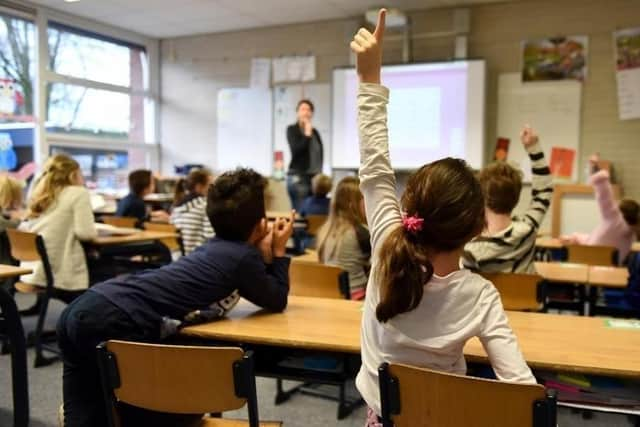Falkirk Council: Consultation to cut school hours goes ahead despite Scottish Government objection
and live on Freeview channel 276
The plan to save Falkirk Council nearly £6 million was not included as part of the administration’s budget on Wednesday after a last-minute warning from Holyrood.
A letter to all councils from Cabinet Secretary for Education and Skills, Jenny Gilruth, reminded them there should be “no reduction in the fundamentals of education delivery, including the number of teachers and the amount of time children spend learning in schools”.
Advertisement
Hide AdAdvertisement
Hide AdIn her letter, the minister said: “It is extremely concerning that some local authorities have proposed cuts to the level of learning hours as part of their 24/25 budget consultations. I am clear that this would not be acceptable.”


The sharp reminder meant that the proposal was withdrawn from Falkirk Council administration’s budget.
However, they did get agreement that the consultation should not be delayed.
According to the report, this will be done “on an individual school basis to ensure parents are able to hear how this change will look in their school, for their child and their family”.
Advertisement
Hide AdAdvertisement
Hide AdChildren’s Services accounts for around 70 per cent of the council’s budget and teachers have already been told that education is expected to deliver £40 million of savings in the next four years.
The changes would mean pupils in school all day from Monday to Thursday, with a lunchtime finish on a Friday.
The council says that the reduction to the school week would allow the council to remove non-class contact cover requirement and associated cost.
For secondary pupils, the change would be from 26.6 hours to 24.75 hours per week.
Advertisement
Hide AdAdvertisement
Hide AdFor primary pupils, it would reduce from 25 hours to 22.5 hours per week, a loss of 855 hours per year.
The intention is also to implement a secondary curriculum structure of 33 periods of 45 minutes.
Councillors were told that protective measures are being built in to the proposals, including:
• No reduction in the curriculum offer in any sector.
• Reintroduces form class to support attendance and wellbeing check ins.
• Sustained inclusion of specialist teaching.
Advertisement
Hide AdAdvertisement
Hide Ad• No changes to contractual arrangements for teachers and support staff.
• Flexibility to realign support for learning assistant hours to increase time spent with children and young people during and after the school day.
• Flexibility to manage bespoke arrangements for specialist ASN settings.
The report also says that the reduction of staff will be managed through “promotion, retirement, conditions of service transfers and redeployment”.
Advertisement
Hide AdAdvertisement
Hide AdIt adds that the change will help to “meet the needs of continuously increasing numbers of children and young people requiring additional support in their learning and well-being”.
At the budget meeting, the SNP spokesperson for education, Councillor Iain Sinclair, thanked the council’s interim director of education and headteachers for their work on developing the proposals.
He said: “Their determination to contribute to changing services while sustaining the outcomes for our young people is unquestionable.”
But, he added it was important that they “take time to understand the proposal.
Advertisement
Hide AdAdvertisement
Hide Ad“That is why our budget defers implementation to allow proper consultation with communities, consideration of those responses and further work to ensure the model that we build will achieve the outcomes we all want for our children,” he said.
Independent councillor Laura Murtagh attempted to have the terms of the consultation discussed at the education, children & young people’s executive but she was told this was not necessary.
The report to councillors states: “The alternatives to this proposal would be direct cuts in staff and cessation of non-statutory services and supports.
“Whilst previous years of cuts and removal of budgets have been skilfully and innovatively managed so as not to impact on learners and their families, if this model was not to be supported, it would not be possible to sustain education services’ current attainment performance or to meet the diverse and changing needs of our children and young people.”